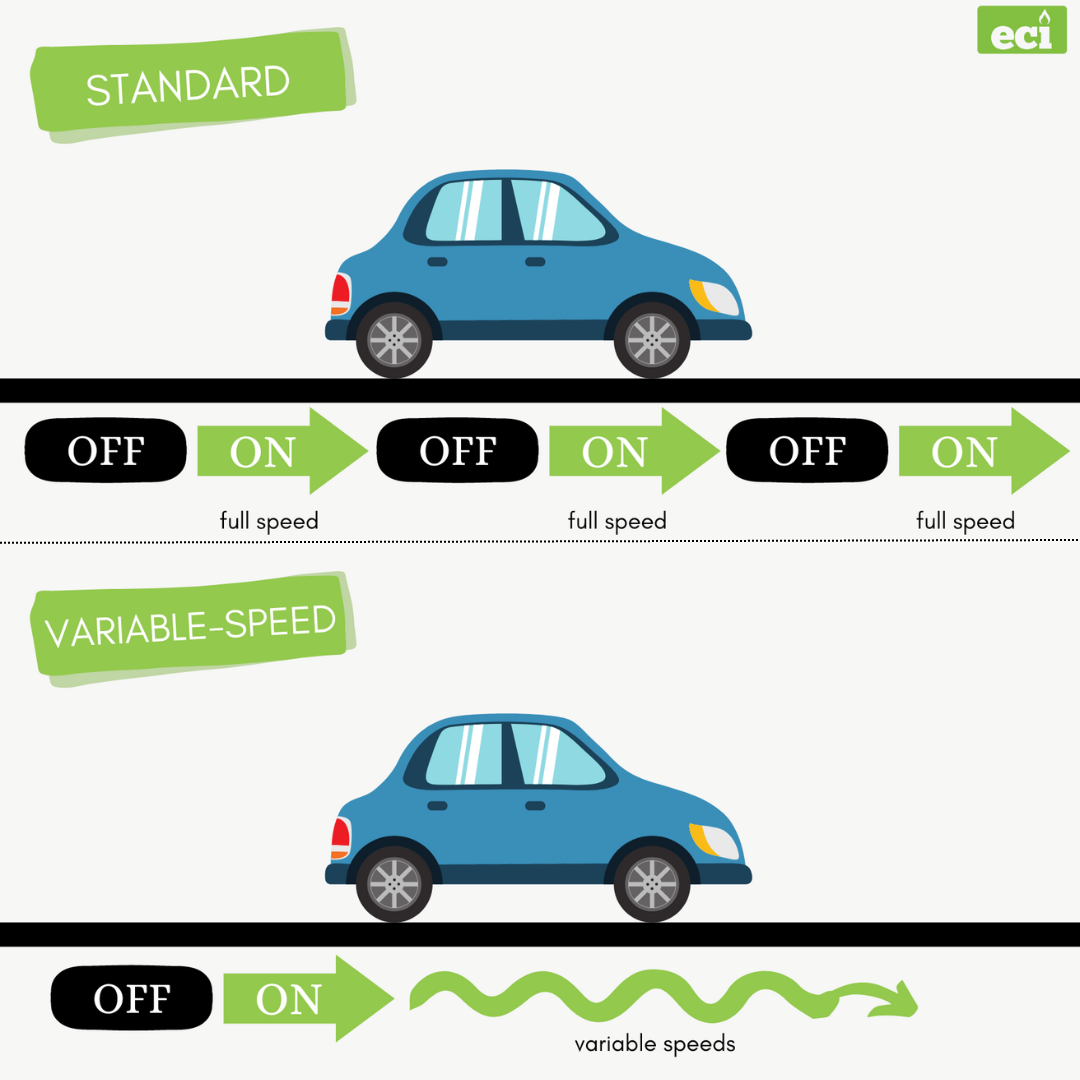If you're looking for an energy-efficient alternative to heating and cooling your Bucks County or Philadelphia home, then a variable-speed heat pump may be a great option. We'll explain what a heat pump is and how heat pumps work, the difference between standard heat pumps and variable-speed heat pumps, and the benefits of variable-speed technology.
What is a Heat Pump?
Like a standard air conditioner, a heat pump is a split-system that consists of an outdoor unit and an indoor air handler. The big difference is that a heat pump can both heat and cool your home.
In the colder months, a heat pump absorbs heat energy from the outside air then distributes it throughout your home. In the summer months, it reverses its cycle and takes the warm inside your air and expels it outside. Most heat pumps don't work when it's too cold outside, but there are cold-weather heat pump options such as the Mitsubishi Electric Hyper-Heat Heat Pump.

Variable-Speed Heat Pumps Versus Standard Heat Pumps
Standard heat pumps (and other HVAC systems) only operate at two speeds: on and off. This means that the system constantly cycles the unit on and off whenever the room dips below desired temperatures. In other words, the system is always running at either zero or 100 percent, which can lead to unpleasant temperature swings as the system strains to maintain a constant temperature.
On the contrary, a variable-speed heat pump continuously runs at the exact speed needed to keep your home comfortable without wasting energy. For example, if your room is already at the desired 71 degrees, the compressor will slow to a crawl. If the room is sweltering hot, the compressor will push into high gear to deliver efficient comfort. Check out this helpful graph to show the difference:

Benefits of Variable-Speed Heat Pumps
High efficiency and lower energy costs
It may seem counterintuitive that a unit that's constantly running uses less energy than one that turns off intermittently. But according to a study by the Department of Energy, “Operating fan motors or compressors at lower speeds for longer periods of time can lead to reduced total energy consumption.” While a variable-speed unit runs longer, it's usually running at a lower speed. It also doesn't need to use a large amount of energy to start up several times as a standard heat pump would. Higher efficiency keeps more money in your pockets as well.
Consistent comfort
Variable-speed technology also means a more accurate and comfortable approach to temperature delivery. The longer heating or cooling cycles help keep the air in your home consistently closer to the temperature set on your thermostat. This results in more even comfort with fewer hot spots and cold spots in the house.
Improved indoor air quality
All HVAC systems utilize some type of air filter that's typically located near the indoor air handler. Some systems may even have special types of air filters or air purifiers for maximum indoor air quality. With a variable-speed heat pump, your system will run continuously which means the air in your home will also be consistently filtered. This results in cleaner and healthier indoor air.

Better humidity control
As those of us in and around Philadelphia know, summers can get humid and uncomfortable. Most of us are probably familiar with the phrase, "it's not the heat, it's the humidity" in reference to the fact that humid air often feels worse than hot temperatures.
Luckily, variable-speed heat pumps do a better job of removing humidity from the air than standard systems. Because they are on for longer periods of time, they can remove more moisture from your home and make you feel more comfortable.
Reduced operating sound levels
A variable speed system also ensures quieter operation. Since the heat pump slowly ramps up to speed, there's no sudden "kick" or "blast" of air at startup. For example, Trane's XV19 Variable-Speed Heat Pump operates between 43 and 57 dBA, while traditional heat pumps operate with sound levels between 72 and 76 dBA.
Finding the right option for your home comfort can be tough, but ECI Comfort can help. Click below to schedule a free heat pump or ductless heat pump estimate.

If you live in the Delaware Valley/Greater Philadelphia area and would like to find comfort within your home, visit our website or give us a call at 215 - 245 - 3200 to learn more.



